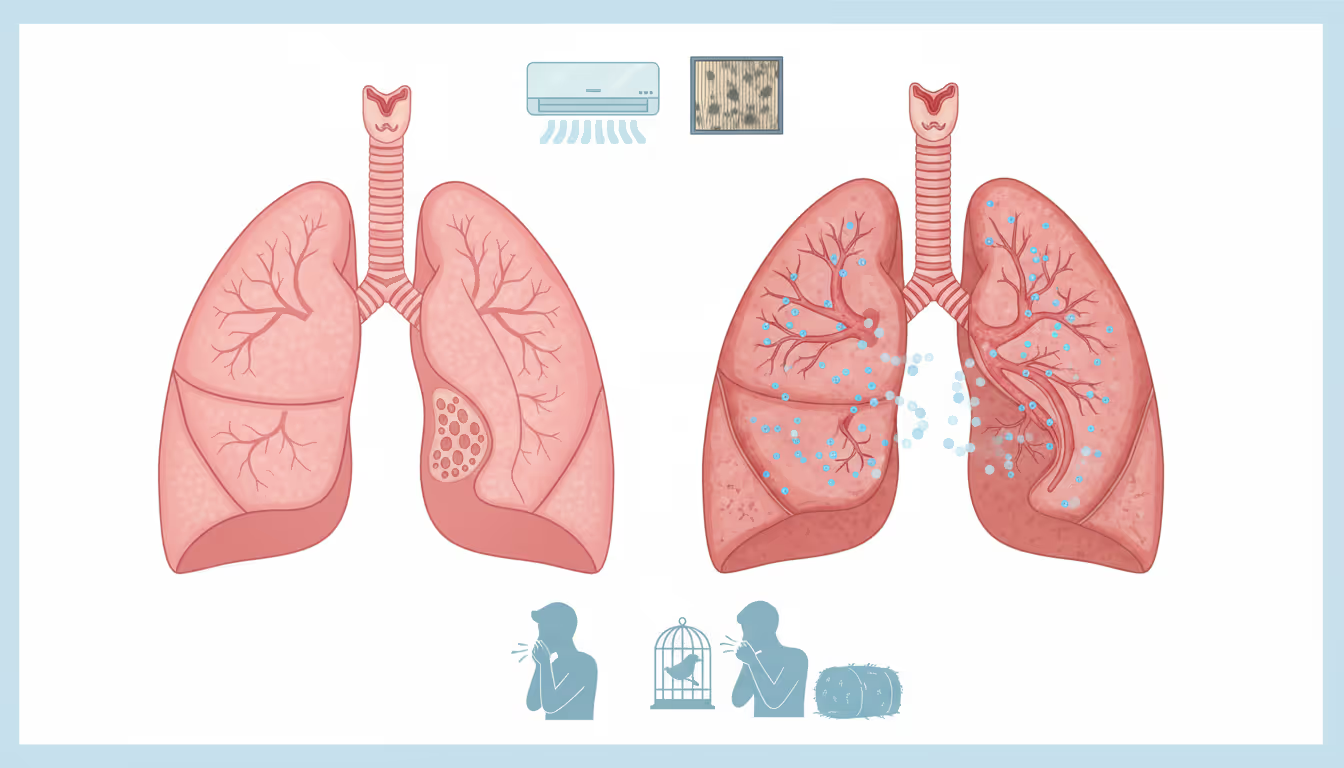
Hypersensitivity pneumonitis, commonly known as "air-conditioner lung," is an inflammation of the lungs caused by inhaling foreign substances, typically certain dusts or molds. This condition is also referred to as extrinsic allergic alveolitis, farmer's lung, mushroom picker's disease, and bird breeder's lung. It often affects individuals who are exposed to high levels of contaminants in their environment, such as those found in humidifiers, heating systems, and air conditioners in homes and offices. Bird owners may develop this condition due to exposure to bird droppings. Farmers are at risk when they repeatedly inhale dust from moldy hay, straw, and grain, which can lead to lung inflammation and acute lung disease. If not addressed, this acute condition can develop into chronic lung disease over time.Acute hypersensitivity pneumonitis symptoms can appear 4 to 6 hours after exposure and may include chills, cough, fever, and shortness of breath. Chronic hypersensitivity pneumonitis symptoms might involve breathlessness, especially during physical activity, a persistent dry cough, loss of appetite, and unintended weight loss. Preventing this condition involves avoiding exposure to the materials that trigger lung inflammation.




